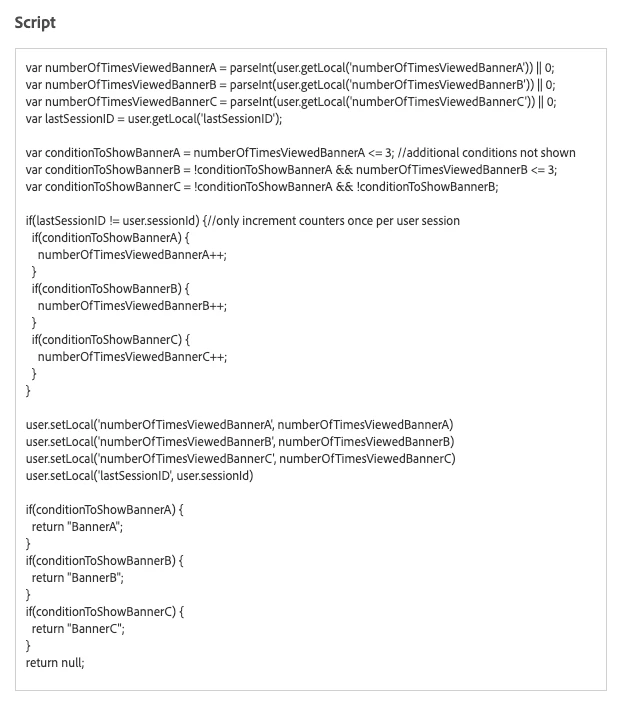Return an offer X amount of times, then return the next offer
We're currently working with a Single Page Application and currently using JSON offers to drive our integration with Adobe Target. We have a business requirement that essentially reads:
if customer is eligible for offer A and has seen offer A 3 times or less:
display offerA
if customer is eligible for offer B and has seen offer B 3 times or less and is not showing offer A in this getOffers call:
display offerB
if customer is eligible for offer C and is not showing offer A or offer B in this getOffers call:
display offerC
We're currently trying to determine if Target is the appropriate solution for this sort of requirement and if so, how it should be implemented. We've proof-of-concepted a solution that might work with profile scripts:

Even with these basic requirements (this example doesn't include the the actual business requirements for when to display banners A B or C, which in their own right could become complex), the script has already become somewhat cumbersome. If we were to receive business requirements for additional banners, we have concern that the script would become difficult to maintain or even inoperable due to the limitations of profile scripts. I have not been able to determine a way to split these into multiple scripts since in order to keep an accurate count of displays, the local vars have to conditionally be incremented based on whether the customer is eligible for higher priority banners.
Is this the only way for us to implement these requirements, or is there an alternate way to approach this?